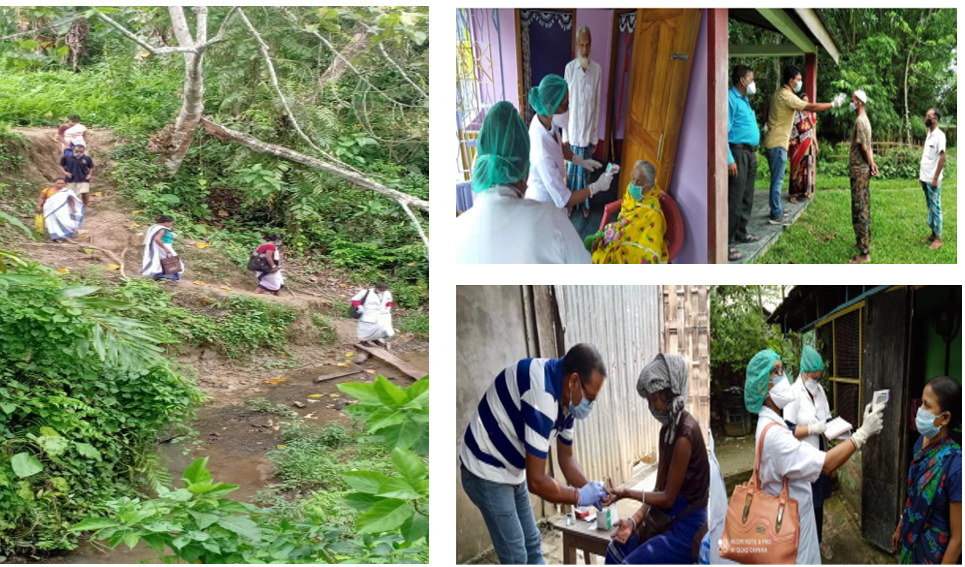
The first reported case in Assam was on 31 March 2020, but the numbers started increasing with the opening of the lockdown. The total number of COVID-19 cases in the state as of 17 May was 100. Acknowledging that the key to effective
COVID-19 management in the state will be adequate testing, tracing, isolating and treating, the state government took a policy decision to follow strict quarantine measures with compassion for everyone entering the state. Before putting a person someone
to a quarantine centre for 14 days, COVID test was is done to determine whether to send the person him/her for on home quarantine (if test result is negative) for the remainder days out of the total quarantine period of 14 days or to admit him/her
them in a COVID hospital, if test result was positive.
To further strengthen outbreak response, the state rolled out an active community surveillance plan (ACSP) to look out for severe acute respiratory infections (SARI), influenza like illness (ILI), fever, dengue and malaria cases covering all the 28000 villages/wards in Assam from 7 May 2020. Through door-to-door visits, potential cases are listed out for testing and follow up action based on the test report. The state completed the first round of ACSP and based on its encouraging results, plans a second round in June covering all villages/wards in Assam.
The ACSP is based on the health sub-centres and the role of the Accredited Social Health Activist (ASHA), a community health worker instituted by the Government of India's Ministry of Health & Family Welfare under the National Rural Health Mission as an interface between the community and the health system, is critical in operationalizing this initiative, as she visits door-to-door to find and list potential cases for testing. Once the ASHA has a line list of potential cases, a team led by a Medical Officer, ANM, MPW and lab technician visit the ASHA worker in the village to meet people she has listed for screening. The sample is collected and transported to the designated lab for testing. All members of the team take precautions as per protocol whilst interacting with patients, their families and community members to educate them about precautions including the use of masks, physical distancing, hand washing, isolation etc. People with symptoms are advised strict home quarantine until their test results come through. Community members have been proactively supporting this initiative as they partner with a responsive health system that proactively reaches out to ensure their well-being.
WHO India has been supporting the state of Assam in conceptualizing, planning, roll-out, data analysis and documenting best practices of ACSP.
